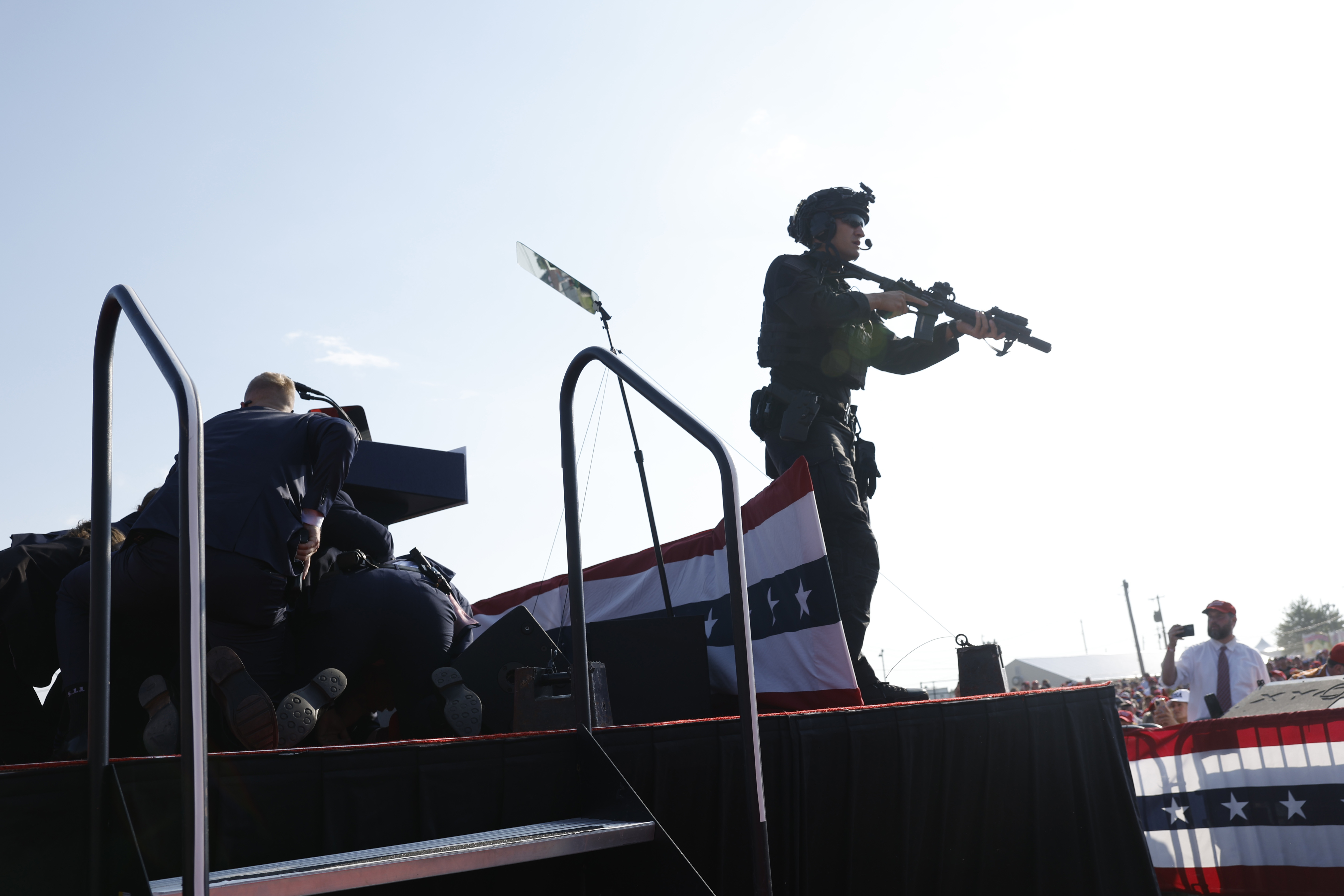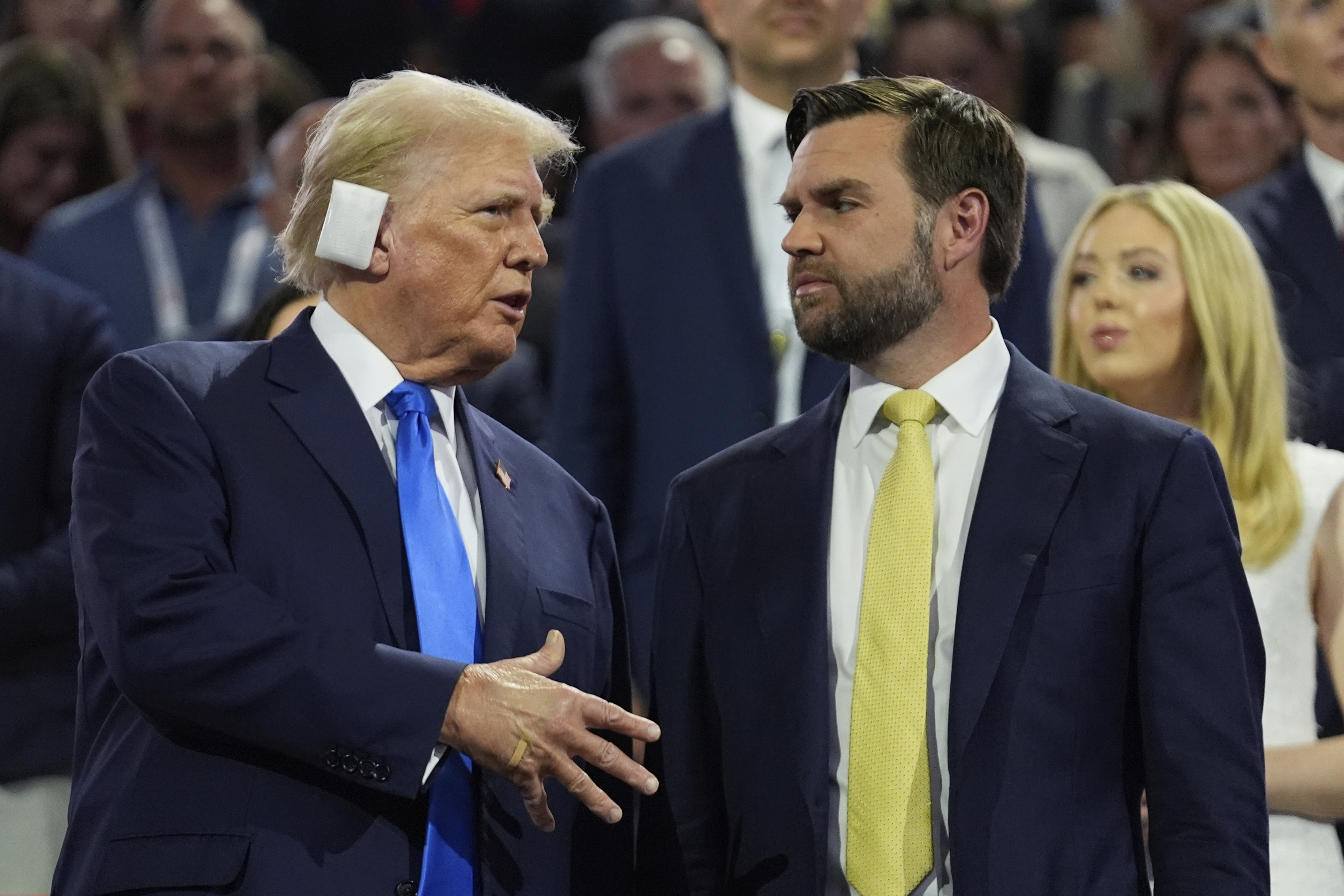The Secret Service now acknowledges it denied some requests by Republican presidential nominee Donald Trump's campaign for increased security at his events in the years before the assassination attempt on him at a recent rally.
In the immediate aftermath of the July 13 attack, the law enforcement agency had denied rejecting such requests. But the Secret Service acknowledged late Saturday, a week after the attempt on Trump's life, that it had turned back some requests to increase security around the former president.
The reversal is likely to be a key focus of a congressional hearing Monday where Secret Service Director Kimberly Cheatle is expected to appear before lawmakers who have been expressing anger over security lapses that allowed a 20-year-old gunman to climb atop the roof of a nearby building at Trump's rally in Butler, Pennsylvania, and fire his weapon.
Trump was wounded in the right ear, one rallygoer was killed and two others were injured.
“The Secret Service has a vast, dynamic, and intricate mission. Every day we work in a dynamic threat environment to ensure our protectees are safe and secure across multiple events, travel, and other challenging environments,” the agency's chief spokesperson, Anthony Guglielmi, said in a statement released late Saturday to The Washington Post. The newspaper was first to report on the agency's reversal, which it said was based on detailed questions submitted to the agency.
“We execute a comprehensive and layered strategy to balance personnel, technology, and specialized operational needs,” Guglielmi said.
He said the agency will rely on state and local law enforcement departments in some cases where specialized Secret Service units are unavailable.
“In some instances where specific Secret Service specialized units or resources were not provided, the agency made modifications to ensure the security of the protectee,” Gugliemi said. “This may include utilizing state or local partners to provide specialized functions or otherwise identifying alternatives to reduce public exposure of a protectee.”
After the assassination attempt, as reports began to circulate that the agency had denied the Trump campaign's requests, Guglielmi issued a denial.
There is "an untrue assertion that a member of the former President’s team requested additional security resources & that those were rebuffed,” Gugliemi said in a social media post. “This is absolutely false. In fact, we added protective resources & technology & capabilities as part of the increased campaign travel tempo.”
Homeland Security Secretary Alejandro Mayorkas has said what happened was a “failure” while several lawmakers have called on Cheatle to resign or be fired. Cheatle so far retains the support of Democratic President Joe Biden and Mayorkas.
Biden, who is campaigning to deny Trump a second term in the White House, has ordered an independent investigation. The Homeland Security Department and congressional committee are also investigating.
Trump says he was given no indication that law enforcement had identified a suspicious person when the former president took the stage in Pennsylvania. Some rallygoers said in interviews after the attempted assassination that they saw the gunman on the roof before Trump walked out onto the stage and had alerted law enforcement authorities on site.
In an interview with Fox News host Jesse Waters set to air Monday, Trump said, “No, nobody mentioned it, nobody said there was a problem” before he took the stage and a gunman opened fire. “They could’ve said, ‘Let’s wait for 15 minutes, 20 minutes, 5 minutes, something.’ Nobody said. I think that was a mistake.”
Trump also questioned the security lapses and how the gunman was able to access the roof of the building.
“How did somebody get on that roof? And why wasn’t he reported? Because people saw that he was on the roof,” Trump said. “So you would’ve thought someone would’ve done something about it.”
Local law enforcement officers had seen the man and deemed him suspicious enough to circulate his photo and witnesses reported seeing him scaling the building.
—-
Associated Press writer Jill Colvin in New York contributed to this report.



